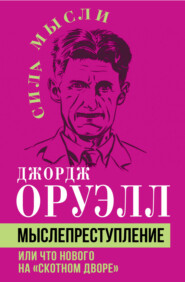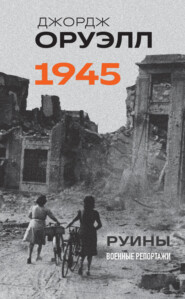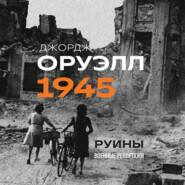По всем вопросам обращайтесь на: info@litportal.ru
(©) 2003-2024.
✖
1984
Настройки чтения
Размер шрифта
Высота строк
Поля
That was all, and he was already uncertain whether it had happened. Such incidents never had any sequel. All that they did was to keep alive in him the belief, or hope, that others besides himself were the enemies of the Party. Perhaps the rumours were true after all—perhaps the Brotherhood really existed! It was impossible to be sure that the Brotherhood was not simply a myth. Some days he believed in it, some days not. There was no evidence. It was all guesswork: very likely he had imagined everything. He had gone back to his cubicle without looking at O’Brien again. The idea of following up their momentary contact hardly crossed his mind. It would have been inconceivably dangerous even if he had known how to set about doing it. For a second, two seconds, they had exchanged an equivocal glance, and that was the end of the story. But even that was a memorable event, in the locked loneliness in which one had to live.
Winston roused himself and sat up straighter. He let out a belch. The gin was rising from his stomach.
His eyes re-focused on the page. He discovered that while he sat helplessly musing he had also been writing, as though by automatic action. And it was no longer the same cramped, awkward handwriting as before. His pen had slid voluptuously over the smooth paper, printing in large neat capitals—DOWN WITH BIG BROTHER DOWN WITH BIG BROTHER DOWN WITH BIG BROTHER DOWN WITH BIG BROTHER DOWN WITH BIG BROTHER over and over again, filling half a page.
He could not help feeling a twinge of panic. It was absurd, since the writing of those particular words was not more dangerous than the initial act of opening the diary, but for a moment he was tempted to tear out the spoiled pages and abandon the enterprise altogether.
He did not do so, however, because he knew that it was useless. Whether he wrote DOWN WITH BIG BROTHER, or whether he refrained from writing it, made no difference. Whether he went on with the diary, or whether he did not go on with it, made no difference. The Thought Police would get him just the same. He had committed—would still have committed, even if he had never set pen to paper—the essential crime that contained all others in itself. Thoughtcrime[8 - Thoughtcrime – Мыслепреступление], they called it. Thoughtcrime was not a thing that could be concealed for ever. You might dodge successfully for a while, even for years, but sooner or later they were bound to get you.
It was always at night—the arrests invariably happened at night. The sudden jerk out of sleep, the rough hand shaking your shoulder, the lights glaring in your eyes, the ring of hard faces round the bed. In the vast majority of cases there was no trial, no report of the arrest. People simply disappeared, always during the night. Your name was removed from the registers, every record of everything you had ever done was wiped out, your one-time existence was denied and then forgotten. You were abolished, annihilated: VAPORIZED was the usual word.
For a moment he was seized by a kind of hysteria. He began writing in a hurried untidy scrawl:
theyll shoot me i don’t care theyll shoot me in the back of the neck i dont care down with big brother they always shoot you in the back of the neck i dont care down with big brother—
He sat back in his chair, slightly ashamed of himself, and laid down the pen. The next moment he started violently. There was a knocking at the door.
Already! He sat as still as a mouse, in the futile hope that whoever it was might go away after a single attempt. But no, the knocking was repeated. The worst thing of all would be to delay. His heart was thumping like a drum, but his face, from long habit, was probably expressionless. He got up and moved heavily towards the door.
Chapter 2
As he put his hand to the door-knob Winston saw that he had left the diary open on the table. DOWN WITH BIG BROTHER was written all over it. It was an inconceivably stupid thing to have done. But, he realized, even in his panic he had not wanted to smudge the creamy paper by shutting the book while the ink was wet.
He drew in his breath and opened the door. A crushed-looking woman, with wispy hair and a lined face, was standing outside.
“Oh, comrade,” she began, “I thought I heard you come in. Do you think you could come across and have a look at our kitchen sink? It’s got blocked up and—”
It was Mrs Parsons, the wife of a neighbour on the same floor. She was a woman of about thirty, but looking much older. Winston followed her.
“Of course it’s only because Tom isn’t home,” said Mrs Parsons vaguely.
The Parsons’ flat was bigger than Winston’s, and dingy in a different way. Everything had a battered look. There were things laying all over the floor, and on the table there was a litter of dirty dishes. In another room someone was trying to keep tune with the military music which was still issuing from the telescreen.
“It’s the children,” said Mrs Parsons. “They haven’t been out today. And of course—”
She had a habit of breaking off her sentences in the middle.
Winston knelt down and examined the angle-joint of the pipe. Mrs Parsons looked on helplessly.
“Of course if Tom was home he’d put it right in a moment,” she said.
Parsons was Winston’s fellow-employee at the Ministry of Truth. He was a fattish but active man of paralyzing stupidity.
“Have you got a spanner?” said Winston.
“A spanner,” said Mrs Parsons. “I don’t know. Perhaps the children—”
There was a trampling of boots and children charged into the living-room. Mrs Parsons brought the spanner. Winston let out the water and disgustedly removed the clot of human hair that had blocked up the pipe. He cleaned his fingers as best he could in the cold water from the tap and went back into the other room.
“Up with your hands!” yelled a savage voice.
A tough-looking boy of nine had popped up from behind the table and was menacing him with a toy automatic pistol, while his small sister, about two years younger, made the same gesture with a fragment of wood.
“You’re a traitor!” yelled the boy. “You’re a thought-criminal! You’re a Eurasian spy! I’ll shoot you!”
Suddenly they were both leaping round him, shouting “Traitor!” and “Thought-criminal!”
Mrs Parsons’ eyes flitted nervously from Winston to the children, and back again.
“They do get so noisy,” she said. “They’re disappointed because they couldn’t go to see the hanging, that’s what it is. I’m too busy to take them and Tom won’t be back from work in time.”
“Why can’t we go and see the hanging?” roared the boy.
“Want to see the hanging! Want to see the hanging!” chanted the little girl.
Some Eurasian prisoners, guilty of war crimes, were to be hanged in the Park that evening, Winston remembered. This happened about once a month, and was a popular spectacle. Children always wanted to be taken to see it. He took his leave of Mrs Parsons and made for the door.
With those children, he thought, that wretched woman must lead a life of terror. Another year, two years, and they would be watching her night and day for symptoms of unorthodoxy. Nearly all children nowadays were horrible. They adored the Party and everything connected with it. It was almost normal for people over thirty to be frightened of their own children. And with good reason, for hardly a week passed in which “The Times” did not carry a paragraph describing how some eavesdropping little sneak—“child hero” was the phrase generally used—had overheard some compromising remark and denounced its parents to the Thought Police.
Once home, he picked up his pen half-heartedly, wondering whether he could find something more to write in the diary.
The voice from the telescreen paused. A trumpet call sounded. The voice continued raspingly:
“Attention! Your attention, please! A newsflash has this moment arrived from the Malabar front. Our forces in South India have won a glorious victory. I am authorized to say that the action we are now reporting may well bring the war within measurable distance of its end. Here is the newsflash—”
Bad news coming, thought Winston. And sure enough, soon came the announcement that, as from next week, the chocolate ration would be reduced from thirty grammes to twenty.
Winston belched again. The gin was wearing off. The telescreen—perhaps to celebrate the victory, perhaps to drown the memory of the lost chocolate—crashed into “Oceania, ‘tis for thee”.
Winston walked over to the window, keeping his back to the telescreen. The day was still cold and clear. Somewhere far away a rocket bomb exploded with a dull, reverberating roar. About twenty or thirty of them a week were falling on London at present.
He wondered again for whom he was writing the diary. For the future, for the past—for an age that might be imaginary.
The telescreen struck fourteen. He must leave in ten minutes. He had to be back at work by fourteen-thirty.
He went back to the table, dipped his pen, and wrote:
To the future or to the past, to a time when thought is free, when men are different from one another and do not live alone—to a time when truth exists and what is done cannot be undone: From the age of uniformity, from the age of solitude, from the age of Big Brother, from the age of doublethink—greetings!
He was already dead, he reflected. It seemed to him that it was only now, when he had begun to be able to formulate his thoughts, that he had taken the decisive step. The consequences of every act are included in the act itself. He wrote:
Thoughtcrime does not entail death: thoughtcrime IS death.
Now he had recognized himself as a dead man it became important to stay alive as long as possible. Two fingers of his right hand were inkstained. It was exactly the kind of detail that might betray you. He went to the bathroom and carefully scrubbed the ink away with the gritty darkbrown soap.
He put the diary away in the drawer. It was quite useless to think of hiding it, but he could at least make sure whether or not its existence had been discovered.
Chapter 3
Winston roused himself and sat up straighter. He let out a belch. The gin was rising from his stomach.
His eyes re-focused on the page. He discovered that while he sat helplessly musing he had also been writing, as though by automatic action. And it was no longer the same cramped, awkward handwriting as before. His pen had slid voluptuously over the smooth paper, printing in large neat capitals—DOWN WITH BIG BROTHER DOWN WITH BIG BROTHER DOWN WITH BIG BROTHER DOWN WITH BIG BROTHER DOWN WITH BIG BROTHER over and over again, filling half a page.
He could not help feeling a twinge of panic. It was absurd, since the writing of those particular words was not more dangerous than the initial act of opening the diary, but for a moment he was tempted to tear out the spoiled pages and abandon the enterprise altogether.
He did not do so, however, because he knew that it was useless. Whether he wrote DOWN WITH BIG BROTHER, or whether he refrained from writing it, made no difference. Whether he went on with the diary, or whether he did not go on with it, made no difference. The Thought Police would get him just the same. He had committed—would still have committed, even if he had never set pen to paper—the essential crime that contained all others in itself. Thoughtcrime[8 - Thoughtcrime – Мыслепреступление], they called it. Thoughtcrime was not a thing that could be concealed for ever. You might dodge successfully for a while, even for years, but sooner or later they were bound to get you.
It was always at night—the arrests invariably happened at night. The sudden jerk out of sleep, the rough hand shaking your shoulder, the lights glaring in your eyes, the ring of hard faces round the bed. In the vast majority of cases there was no trial, no report of the arrest. People simply disappeared, always during the night. Your name was removed from the registers, every record of everything you had ever done was wiped out, your one-time existence was denied and then forgotten. You were abolished, annihilated: VAPORIZED was the usual word.
For a moment he was seized by a kind of hysteria. He began writing in a hurried untidy scrawl:
theyll shoot me i don’t care theyll shoot me in the back of the neck i dont care down with big brother they always shoot you in the back of the neck i dont care down with big brother—
He sat back in his chair, slightly ashamed of himself, and laid down the pen. The next moment he started violently. There was a knocking at the door.
Already! He sat as still as a mouse, in the futile hope that whoever it was might go away after a single attempt. But no, the knocking was repeated. The worst thing of all would be to delay. His heart was thumping like a drum, but his face, from long habit, was probably expressionless. He got up and moved heavily towards the door.
Chapter 2
As he put his hand to the door-knob Winston saw that he had left the diary open on the table. DOWN WITH BIG BROTHER was written all over it. It was an inconceivably stupid thing to have done. But, he realized, even in his panic he had not wanted to smudge the creamy paper by shutting the book while the ink was wet.
He drew in his breath and opened the door. A crushed-looking woman, with wispy hair and a lined face, was standing outside.
“Oh, comrade,” she began, “I thought I heard you come in. Do you think you could come across and have a look at our kitchen sink? It’s got blocked up and—”
It was Mrs Parsons, the wife of a neighbour on the same floor. She was a woman of about thirty, but looking much older. Winston followed her.
“Of course it’s only because Tom isn’t home,” said Mrs Parsons vaguely.
The Parsons’ flat was bigger than Winston’s, and dingy in a different way. Everything had a battered look. There were things laying all over the floor, and on the table there was a litter of dirty dishes. In another room someone was trying to keep tune with the military music which was still issuing from the telescreen.
“It’s the children,” said Mrs Parsons. “They haven’t been out today. And of course—”
She had a habit of breaking off her sentences in the middle.
Winston knelt down and examined the angle-joint of the pipe. Mrs Parsons looked on helplessly.
“Of course if Tom was home he’d put it right in a moment,” she said.
Parsons was Winston’s fellow-employee at the Ministry of Truth. He was a fattish but active man of paralyzing stupidity.
“Have you got a spanner?” said Winston.
“A spanner,” said Mrs Parsons. “I don’t know. Perhaps the children—”
There was a trampling of boots and children charged into the living-room. Mrs Parsons brought the spanner. Winston let out the water and disgustedly removed the clot of human hair that had blocked up the pipe. He cleaned his fingers as best he could in the cold water from the tap and went back into the other room.
“Up with your hands!” yelled a savage voice.
A tough-looking boy of nine had popped up from behind the table and was menacing him with a toy automatic pistol, while his small sister, about two years younger, made the same gesture with a fragment of wood.
“You’re a traitor!” yelled the boy. “You’re a thought-criminal! You’re a Eurasian spy! I’ll shoot you!”
Suddenly they were both leaping round him, shouting “Traitor!” and “Thought-criminal!”
Mrs Parsons’ eyes flitted nervously from Winston to the children, and back again.
“They do get so noisy,” she said. “They’re disappointed because they couldn’t go to see the hanging, that’s what it is. I’m too busy to take them and Tom won’t be back from work in time.”
“Why can’t we go and see the hanging?” roared the boy.
“Want to see the hanging! Want to see the hanging!” chanted the little girl.
Some Eurasian prisoners, guilty of war crimes, were to be hanged in the Park that evening, Winston remembered. This happened about once a month, and was a popular spectacle. Children always wanted to be taken to see it. He took his leave of Mrs Parsons and made for the door.
With those children, he thought, that wretched woman must lead a life of terror. Another year, two years, and they would be watching her night and day for symptoms of unorthodoxy. Nearly all children nowadays were horrible. They adored the Party and everything connected with it. It was almost normal for people over thirty to be frightened of their own children. And with good reason, for hardly a week passed in which “The Times” did not carry a paragraph describing how some eavesdropping little sneak—“child hero” was the phrase generally used—had overheard some compromising remark and denounced its parents to the Thought Police.
Once home, he picked up his pen half-heartedly, wondering whether he could find something more to write in the diary.
The voice from the telescreen paused. A trumpet call sounded. The voice continued raspingly:
“Attention! Your attention, please! A newsflash has this moment arrived from the Malabar front. Our forces in South India have won a glorious victory. I am authorized to say that the action we are now reporting may well bring the war within measurable distance of its end. Here is the newsflash—”
Bad news coming, thought Winston. And sure enough, soon came the announcement that, as from next week, the chocolate ration would be reduced from thirty grammes to twenty.
Winston belched again. The gin was wearing off. The telescreen—perhaps to celebrate the victory, perhaps to drown the memory of the lost chocolate—crashed into “Oceania, ‘tis for thee”.
Winston walked over to the window, keeping his back to the telescreen. The day was still cold and clear. Somewhere far away a rocket bomb exploded with a dull, reverberating roar. About twenty or thirty of them a week were falling on London at present.
He wondered again for whom he was writing the diary. For the future, for the past—for an age that might be imaginary.
The telescreen struck fourteen. He must leave in ten minutes. He had to be back at work by fourteen-thirty.
He went back to the table, dipped his pen, and wrote:
To the future or to the past, to a time when thought is free, when men are different from one another and do not live alone—to a time when truth exists and what is done cannot be undone: From the age of uniformity, from the age of solitude, from the age of Big Brother, from the age of doublethink—greetings!
He was already dead, he reflected. It seemed to him that it was only now, when he had begun to be able to formulate his thoughts, that he had taken the decisive step. The consequences of every act are included in the act itself. He wrote:
Thoughtcrime does not entail death: thoughtcrime IS death.
Now he had recognized himself as a dead man it became important to stay alive as long as possible. Two fingers of his right hand were inkstained. It was exactly the kind of detail that might betray you. He went to the bathroom and carefully scrubbed the ink away with the gritty darkbrown soap.
He put the diary away in the drawer. It was quite useless to think of hiding it, but he could at least make sure whether or not its existence had been discovered.
Chapter 3

















